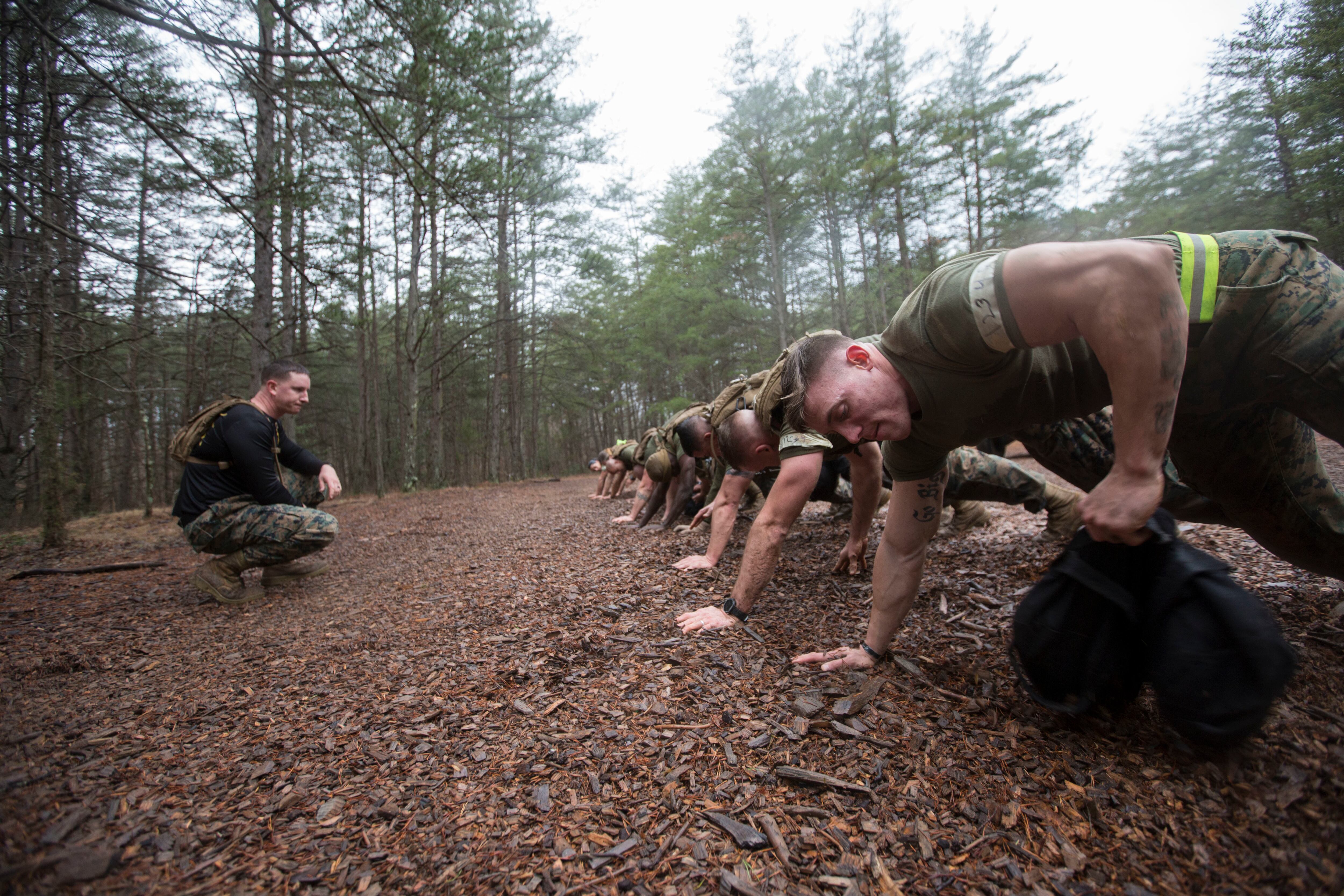The Marine Corps is looking for volunteers to take multiple scans as it re-evaluates its body composition standards.
The Corps hopes to get between 600 and 800 Marines to volunteer for body scans and X-rays that would take a detailed look at their body to implement more scientific standards, Military.com first reported.
It is possible the study could lead to a new body composition standard in the Marine Corps.
“Taking care of Marines is always a leadership priority,” Maj. Lindsey Slyman, the programs and assessment section head for the Marine Corps’ policy and standards division said in a statement. “Taking care of Marines means not only vigorously enforcing our high standards, but constantly evolving those standards for a more healthy, fit, and ready force.”
RELATED

Volunteers ideally will come from Marines of all genders and ages and even include postpartum Marines, Karl Friedl, senior research scientist for physiology at the Army Research Institute of Environmental Medicine, said in a statement.
The study will compare whole body scans, body fat percentage and body shape to the physical fitness test and combat fitness test scores of Marines to come to a more scientific body composition standard.
Data suggests Marines are healthier and fitter than ever before, Friedl said, with more lean body mass and greater bone density. But the Defense Department standards put more emphasis on being thin than on being fit, Military.com reported.
The Corps will use a dual energy X-ray absorptiometry to measure tissues fat, lean muscle and bone density, along with a “state-of-the-art,” 3D full body scanner to get a near complete understanding of the body composition for the Marines involved in the study, Friedl said.
Volunteers are asked to bring their basic training records, along with PFT and CFT scores, to the study in order to have an understanding of the Marine’s fitness level.
Officers attending the Basic School at Quantico, Virginia, started volunteering for the test in March, with a focus on candidate’s body composition and performance at the beginning and end of the six-month training cycle.
Four cycles of TBS students are expected to be tested, with their study completed around June 2022.
The study on Marines in the National Capital Region is expected to be completed by March 2022.




